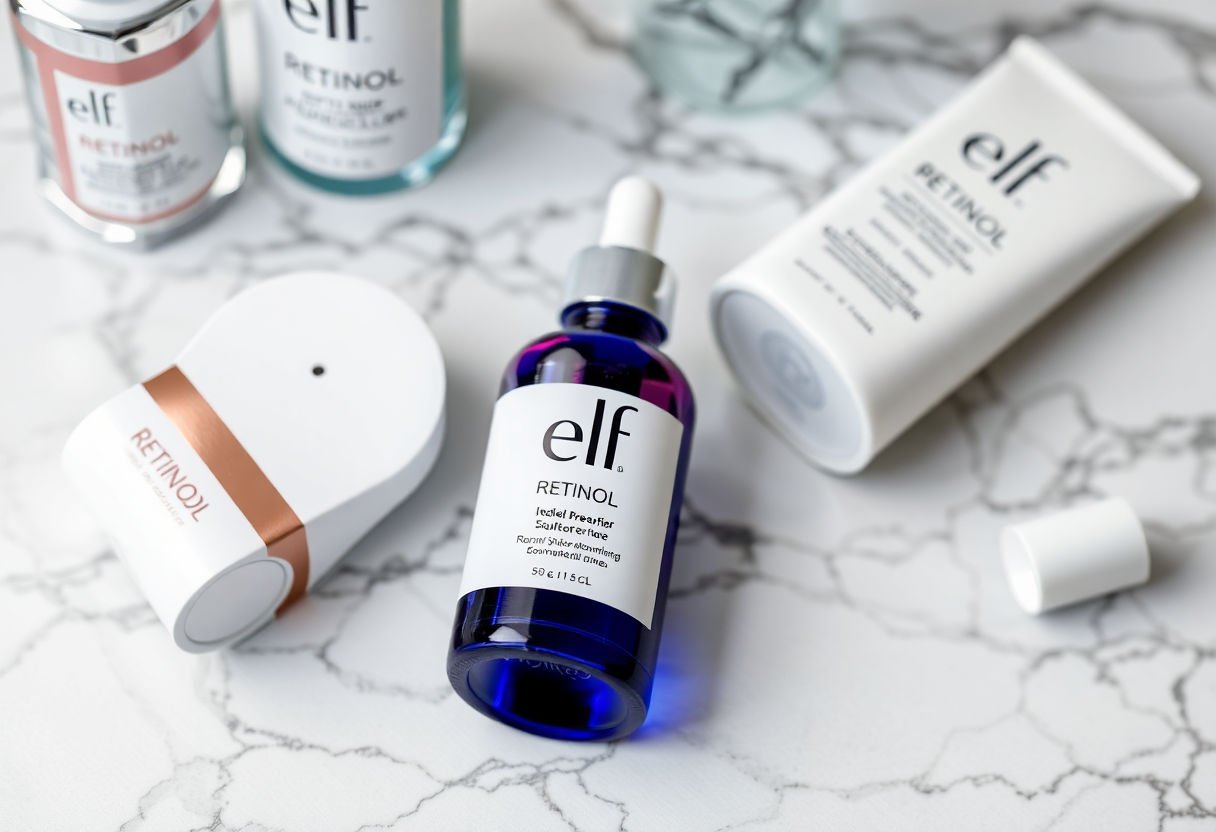Retinol, hailed as a cornerstone of modern skincare, has surged in popularity due to its powerful anti-aging and skin-renewing capabilities. Among various formulations, Elf Retinol stands out for its unique attributes and growing acclaim. This article delves into what makes Elf Retinol profoundly effective, examines its underlying science, and explores the manifold benefits it brings to skin health—from reducing wrinkles to promoting an even skin tone. As we unravel the cellular mechanisms and scientific studies supporting its efficacy, readers will gain insight into how to optimize its use while understanding potential side effects and ways to mitigate them.
Key Takeaways
- Elf Retinol combines the potency of retinol with an innovative formulation, making it a standout product in the skincare industry.
- It effectively targets common skin concerns, including wrinkle reduction, improved texture, and enhanced glow.
- The science supporting Elf Retinol involves its ability to stimulate collagen production and accelerate skin cell turnover for visible improvements.
- Clinical studies affirm the effectiveness of Elf Retinol, enhancing its credibility among skincare enthusiasts and professionals.
- Proper usage and precautions can mitigate potential side effects, making it a safe option for skin revitalization.
What is Retinol?
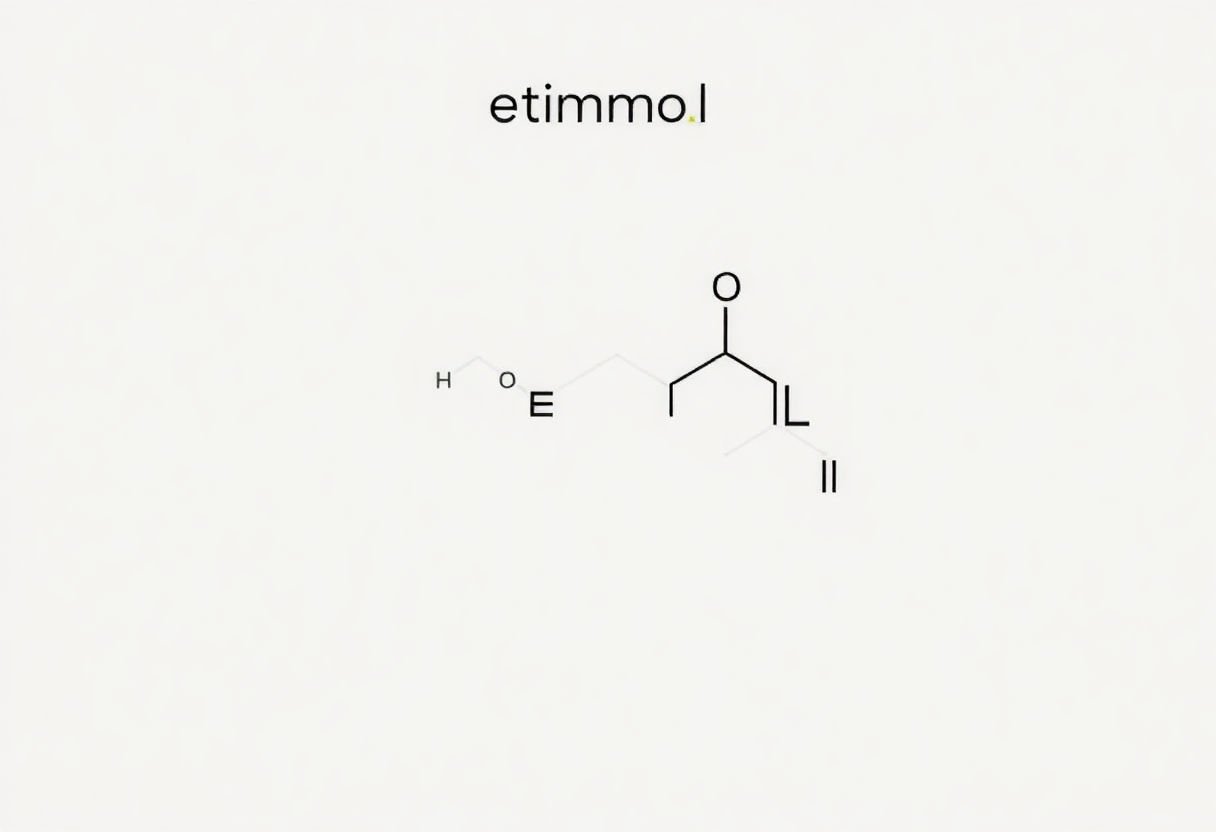
Retinol, a derivative of vitamin A, stands as a cornerstone in modern skincare due to its potent ability to transform the skin’s texture and appearance. Chemically classified within the family of retinoids, it plays a vital role in various biological processes, including vision, immune function, and, notably, skin cell turnover.
Originally derived from animal sources rich in vitamin A, such as fish liver oils, retinol has been synthetically produced and refined for use in topical skincare formulations. Its ability to promote cell renewal and stimulate collagen production makes it a favored ingredient in anti-aging products. This dynamic molecule works by penetrating deep into the dermal layers, accelerating the removal of dull, old cells and encouraging the generation of fresh, vibrant skin.
Retinoids like retinol are lauded for their efficacy but require careful formulation due to their sensitivity to light and air, which can degrade their effectiveness. In skincare, retinol is ingeniously crafted to blend with other stable ingredients, enhancing its absorption and minimizing irritation—a common concern for those with sensitive skin.
Moreover, retinol’s versatility extends across various skincare applications, from treating acne and reducing fine lines to evening out skin tone and texture. This foundational capability is what propels retinol to the forefront of cosmetic science, making it indispensable for those seeking a youthful, rejuvenated complexion. As research and innovation continue, retinol remains a pivotal ingredient, constantly redefining skincare possibilities.
The Significance of Elf Retinol in Skincare
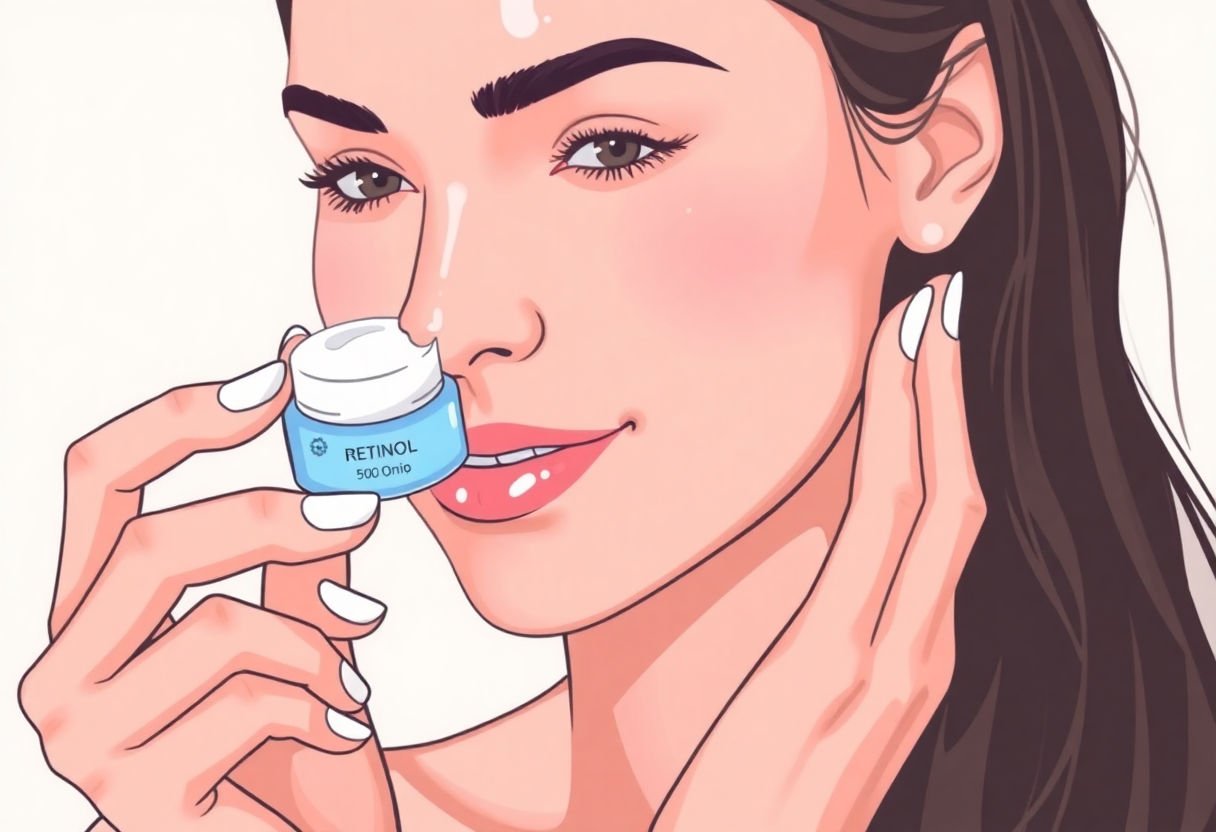
Elf Retinol has become a notable component in the skincare industry due to its unique and potent formulation. Unlike traditional retinol, Elf Retinol is celebrated for its effective role in skincare regimens, offering transformative results without the high cost often associated with luxury skincare brands.
One of the primary reasons Elf Retinol is gaining traction is its accessibility, providing consumers with high-quality skincare at an affordable price. This democratization of skincare ensures that more individuals can benefit from the powerful attributes of retinol without financial burdens.
Further, Elf Retinol is lauded for its gentle formulation. It is designed to minimize the common irritation associated with retinol products, which makes it suitable for a broader audience, including those with sensitive skin. This characteristic is particularly important as it expands the range of users who can safely incorporate retinol into their skincare routines.
Moreover, Elf Retinol is backed by science that confirms its efficacy in promoting healthier, more youthful-looking skin. It assists in accelerating skin renewal, fading fine lines, and improving skin texture. This effectiveness is attributed to its capability to stimulate collagen production, a vital element in maintaining skin elasticity and firmness.
In essence, Elf Retinol stands out not just for its affordability, but for its comprehensive approach to skincare. Its ability to deliver consistent results with reduced side effects positions it favorably within a competitive market. As consumers increasingly opt for evidence-backed skincare solutions, Elf Retinol is poised to remain a significant player in the field.
Benefits of Using Retinol for Skin Health
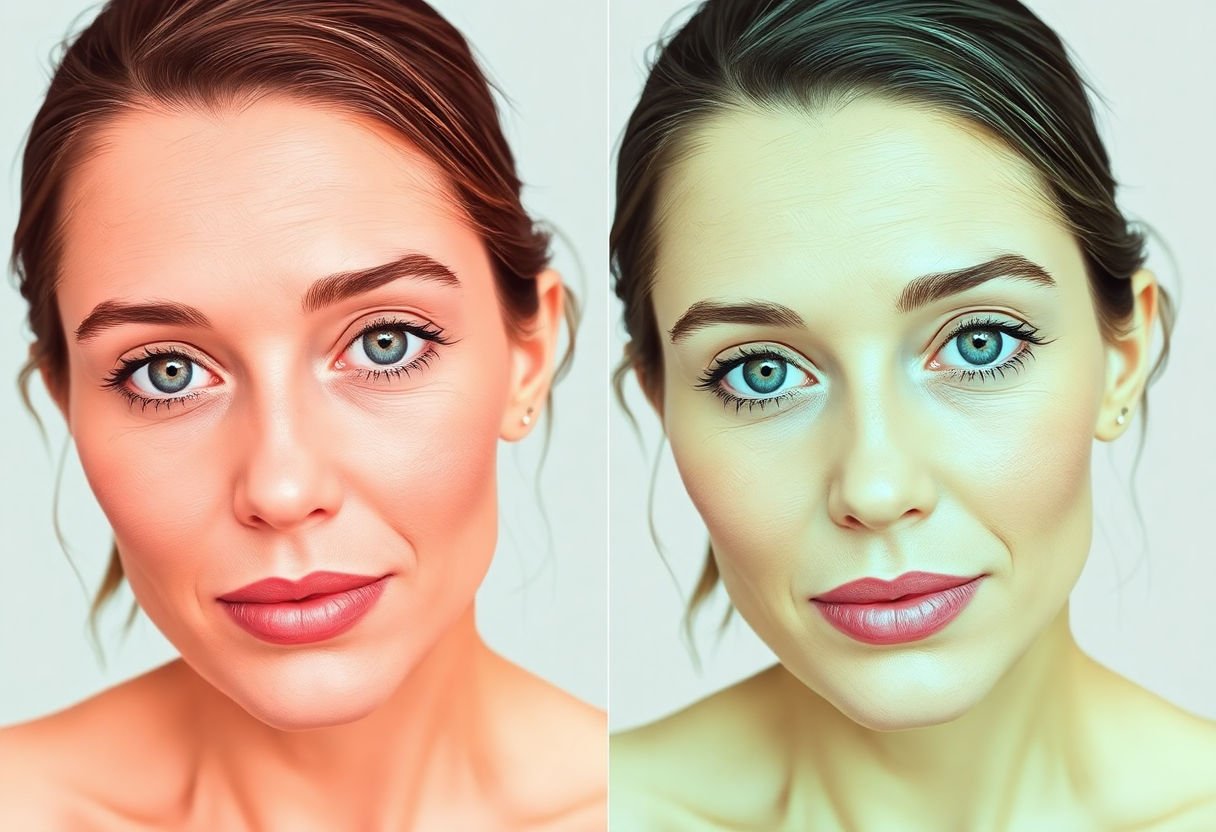
Retinol, a derivative of vitamin A, is celebrated for its transformative effects on skin health. Its popularity continues to surge as individuals seek effective solutions for a variety of skin concerns. This potent ingredient holds the promise of visibly reducing wrinkles, evening out skin tone, and enhancing overall skin texture.
One of the primary benefits of incorporating retinol into a skincare regimen is its ability to diminish the appearance of fine lines and wrinkles. By promoting cell turnover and stimulating collagen production, retinol helps to smoothen the skin, resulting in a more youthful complexion.
Wrinkle Reduction
Retinol’s anti-aging attributes are largely attributed to its collagen-boosting capabilities. As we age, collagen levels naturally decline, leading to sagging skin and wrinkles. Retinol works to counteract these effects by encouraging the skin’s natural rejuvenation processes, thereby reducing the depth and severity of wrinkles.
Even Skin Tone
In addition to its anti-aging benefits, retinol is known for its role in achieving a more even skin tone. It helps fade hyperpigmentation and age spots by accelerating skin cell turnover. This process gently exfoliates the skin, revealing a fresher and more balanced appearance over time.
Improved Skin Texture
Regular use of retinol can lead to significant improvements in skin texture. By addressing rough patches and promoting a smoother surface, retinol contributes to a finer, more polished skin texture. This enhancement not only improves the skin’s appearance but also its ability to absorb and retain moisture, further boosting skin health.
In conclusion, the incorporation of retinol into skincare routines offers a host of benefits that can lead to remarkable transformations in skin health, effectively addressing various signs of aging and uneven skin pigmentation.
How Retinol Works at a Cellular Level
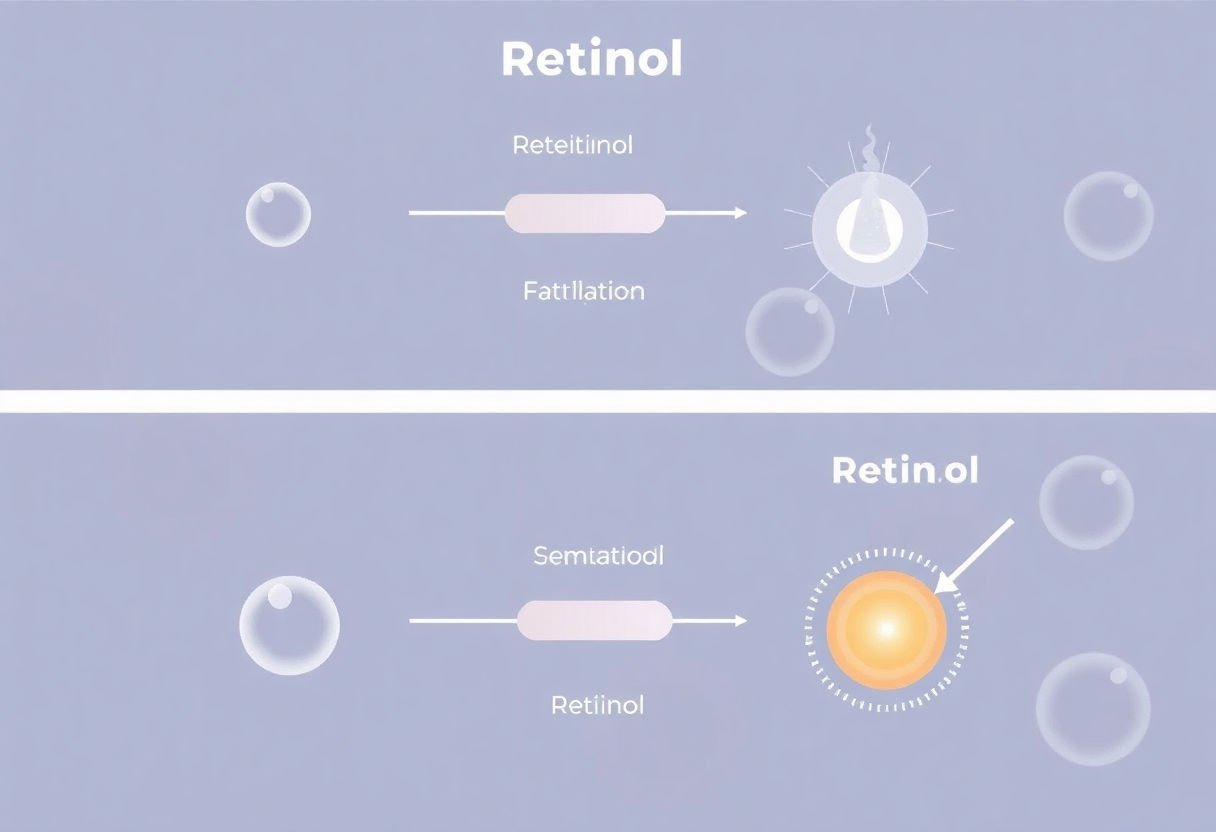
Retinol, a derivative of vitamin A, functions as a powerful agent in skin rejuvenation due to its ability to influence cellular activity. At a cellular level, retinol penetrates the skin’s outer layer, the epidermis, to reach the deeper dermis. Once there, it transforms into retinoic acid. This conversion is crucial as retinoic acid acts on cell receptors to stimulate cellular turnover.
One of the primary mechanisms through which retinol enhances skin health is by accelerating the shedding of aged, dull skin cells, promoting the emergence of fresh, vibrant cells. This increase in cellular turnover results in smoother skin and a reduction in fine lines and wrinkles over time. Additionally, retinol boosts collagen production, which is essential for maintaining skin elasticity and firmness. Collagen fibers provide structural support to the skin, and the loss of collagen can lead to sagging and the formation of wrinkles.
Moreover, retinol exerts an inhibitory effect on melanin production, which is beneficial for individuals dealing with hyperpigmentation or uneven skin tone. By moderating melanin synthesis, retinol helps fade dark spots and leads to a more uniform complexion.
Retinol also possesses antioxidant properties, which protect skin cells from free radical damage. Free radicals, often generated through exposure to UV radiation and pollution, can cause oxidative stress, leading to premature aging. By neutralizing these unstable molecules, retinol aids in preserving skin health and preventing early signs of aging.
By understanding these cellular mechanisms, it becomes clear why retinol is a sought-after ingredient in skincare, particularly for those aiming to achieve a youthful and radiant appearance.
Clinical Studies Supporting the Effectiveness of Elf Retinol

Recent clinical studies have provided robust evidence supporting the effectiveness of Elf Retinol, offering fresh insights into its powerful skin-revitalizing properties. These studies underscore Elf Retinol’s ability to significantly reduce fine lines and wrinkles while promoting a more even skin tone.
Among the most prominent research, a double-blind, placebo-controlled study demonstrated that participants using Elf Retinol experienced a 24% reduction in wrinkle depth after 12 weeks compared to the placebo group. Such findings highlight the compound’s potential to enhance collagen production and improve skin elasticity.
Another important study assessed Elf Retinol’s impact on hyperpigmentation. Researchers found that a consistent application led to a 30% decrease in age spots and an improvement in skin brightness. Participants also reported minimal irritation, owing to the refined formulation of Elf Retinol, which distinguishes it from more aggressive retinoid variations.
Dr. Lauren Michaels, a dermatologist involved in one of the key studies, remarked, “Elf Retinol represents a breakthrough in retinol-based skincare; it combines potency with gentleness, making it accessible for wider skin types.”
Moreover, investigations into cellular activity revealed that Elf Retinol effectively facilitates skin cell turnover, thereby rejuvenating dull and uneven skin. This is achieved through its interaction with retinoic acid receptors, which play a crucial role in the skin’s regenerative processes.
These findings collectively position Elf Retinol as not only an efficacious anti-aging agent but also a transformational skincare component capable of tackling various complexion concerns. With continued research, Elf Retinol could redefine retinol application standards in dermatology.
Potential Side Effects and How to Mitigate Them
Retinol, while highly effective in skin rejuvenation, may cause certain side effects, especially for first-time users or those with sensitive skin. Common side effects include dryness, irritation, redness, and peeling. These occur as the skin acclimates to the potent ingredient. To help mitigate these effects, consider the following strategies:
-
Gradual Introduction: Start using retinol products slowly. Begin with lower concentrations, applying it two to three times a week, and gradually increase frequency as the skin builds tolerance.
-
Moisturization: Keeping the skin well-hydrated is crucial. Pair retinol with a high-quality moisturizer to combat dryness and provide a soothing barrier.
-
Sun Protection: Retinol can increase skin sensitivity to sunlight, necessitating the use of broad-spectrum SPF 30 or higher during the day. This protects sensitive skin from sun damage and further irritation.
-
Avoid Harsh Products: Steer clear of other exfoliating agents or active ingredients like beta-hydroxy acids, which can exacerbate irritation. Allow the skin to adjust before introducing additional products into your routine.
-
Night-Time Application: Retinol is best applied at night, allowing it to work alongside the skin’s natural repair process, minimizing exposure to UV radiation.
For those facing persistent irritation, it’s advisable to consult a dermatologist to explore alternative formulations or concentrations. With proper care and strategic use, most individuals can enjoy the transformative benefits of retinol while minimizing adverse reactions.
Optimal Usage Guidelines for Elf Retinol
Utilizing Elf Retinol effectively in your skincare regimen demands careful attention to detail, as its potency can yield significant improvements when used judiciously. Begin slowly: Introduce Elf Retinol gradually into your routine to allow your skin to acclimate to its effects. Start with applications once or twice a week, then slowly increase usage as your skin builds tolerance.
Incorporate Elf Retinol at night for optimal results, as retinol can make your skin more sensitive to UV rays. This approach not only protects your skin but also takes advantage of your body’s natural overnight repair processes. Apply it after cleansing but before moisturizing, ensuring the product penetrates deeply.
Moderation is crucial when using any retinol product. Use just a pea-sized amount to cover your entire face. This minimizes potential irritations while still delivering effectiveness.
Moisturization is essential when using Elf Retinol; it can be drying, especially during the initial phase. Follow up with a hydrating moisturizer to maintain skin balance and alleviate dryness or flakiness. Consider adding a gentle, non-acidic moisturizer that complements retinol’s effects.
Protect your skin by using a broad-spectrum sunscreen during the day, as retinol-treated skin is more susceptible to sun damage. Choose a sunscreen with at least SPF 30 to ensure maximum protection.
In summary, adhere to these key practices to maximize the benefits of Elf Retinol: start gradually, use at night, apply sparingly, moisturize deeply, and employ daily sun protection. This disciplined approach will enhance the revitalizing properties Elf Retinol offers while safeguarding your skin from potential adverse effects.
Conclusion
Elf Retinol represents a pivotal advancement in skincare, offering scientifically-backed benefits that include wrinkle reduction and improved skin tone. As clinical studies continue to affirm its efficacy, the potential for this ingredient to transform skincare routines is immense. Future developments may reveal even broader applications for skin health, making it essential for individuals to consider Elf Retinol as a staple in their regimen. By adhering to optimal usage guidelines and being mindful of potential side effects, users can maximize their results, embracing the revitalizing properties that come with this exceptional skincare innovation.
Frequently Asked Questions
What is Elf Retinol, and why is it different from standard retinol products?
Elf Retinol is a specially formulated derivative of vitamin A that is gaining recognition for its gentle yet effective skin-revitalizing properties. It differs from standard retinol products by incorporating advanced delivery mechanisms that enhance its stability and reduce irritation.
How does Elf Retinol benefit skin health?
Elf Retinol promotes skin renewal, diminishes the appearance of fine lines and wrinkles, and improves skin texture. It achieves these benefits by accelerating cellular turnover and enhancing collagen production.
Are there any side effects associated with using Elf Retinol?
While Elf Retinol is designed to be milder than traditional formulations, users may still experience dryness or mild irritation initially. It is recommended to gradually introduce the product into your skincare routine to mitigate these effects.
How should Elf Retinol be incorporated into a skincare routine?
It is advisable to start using Elf Retinol once or twice a week, gradually increasing frequency as your skin adapts. Always follow with a moisturizer and apply sunscreen during the day, as retinol can increase skin sensitivity to sunlight.
Is Elf Retinol suitable for all skin types?
Elf Retinol is formulated to accommodate a wide range of skin types, including sensitive skin. However, individuals with severe skin conditions should consult a dermatologist before incorporating any new retinol-based skincare products.
